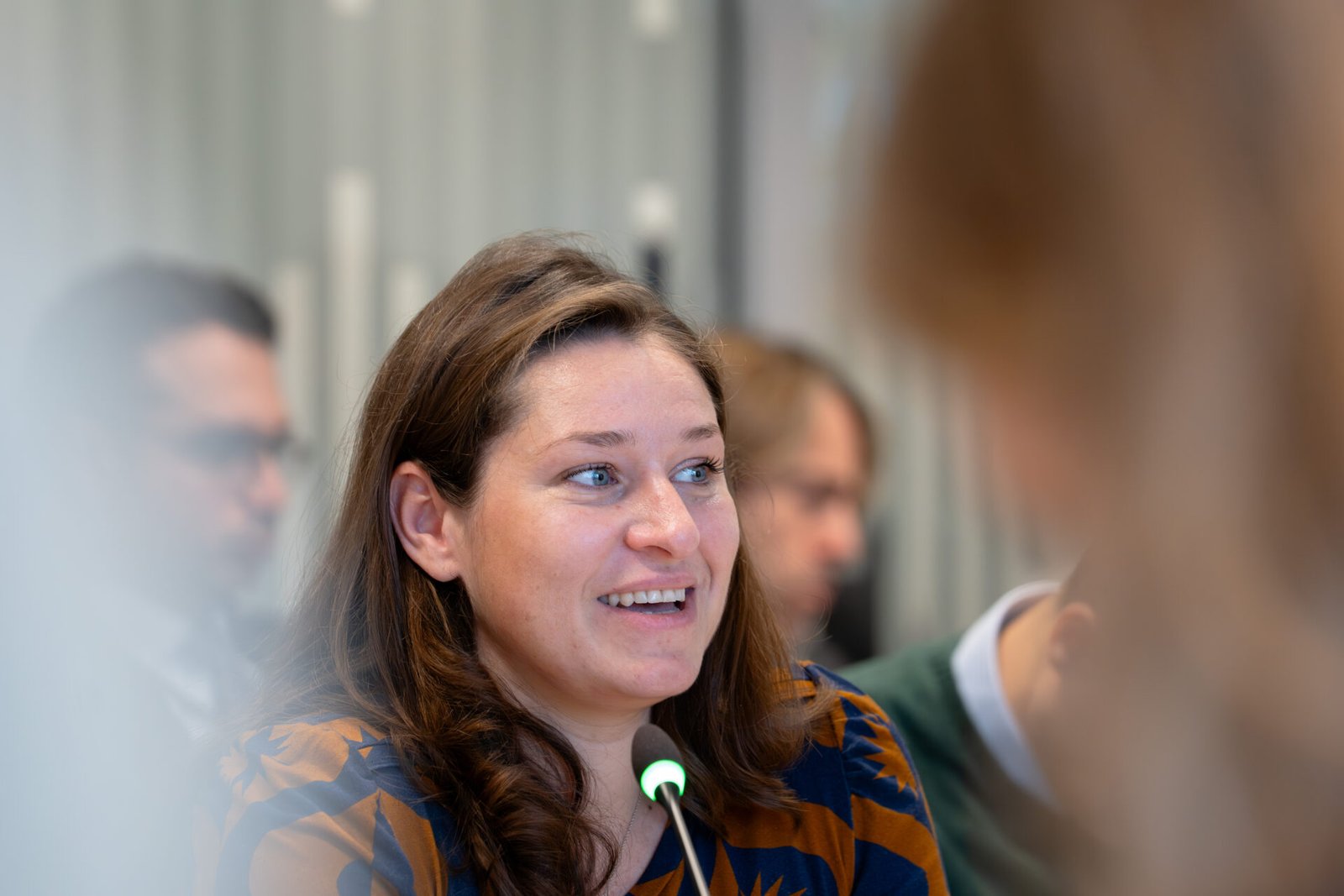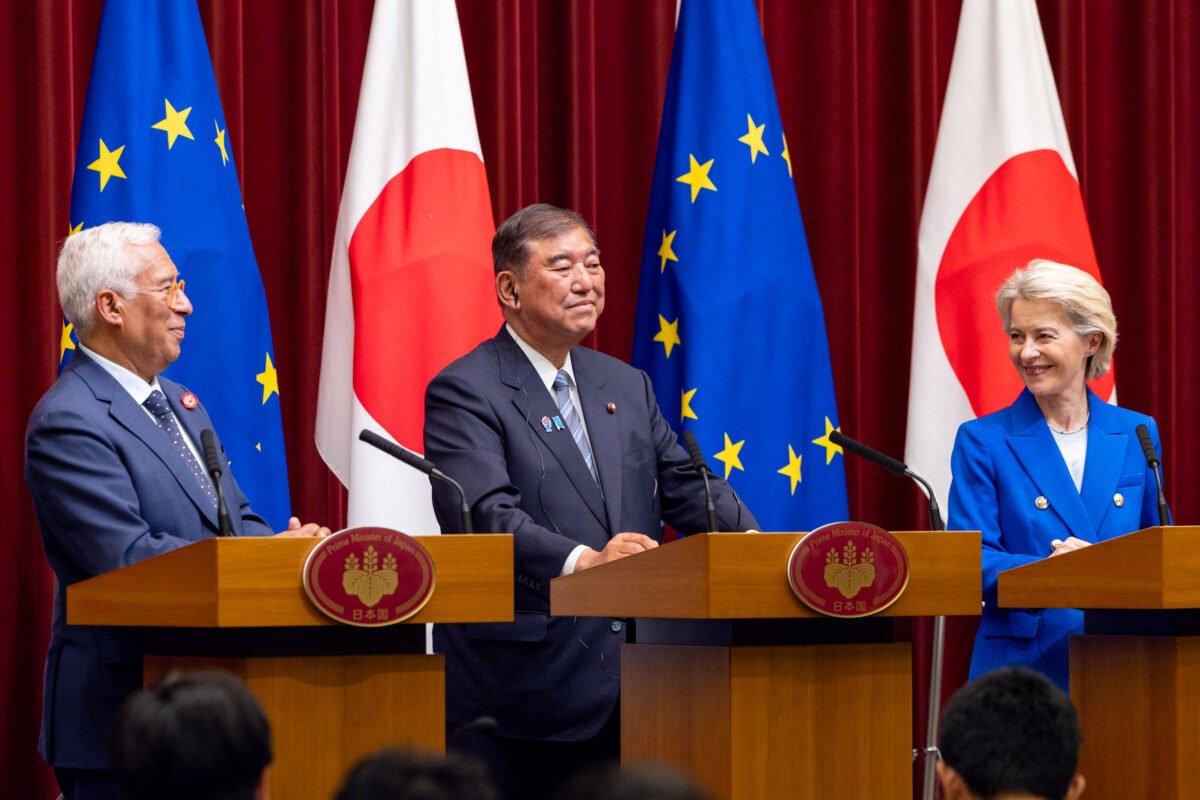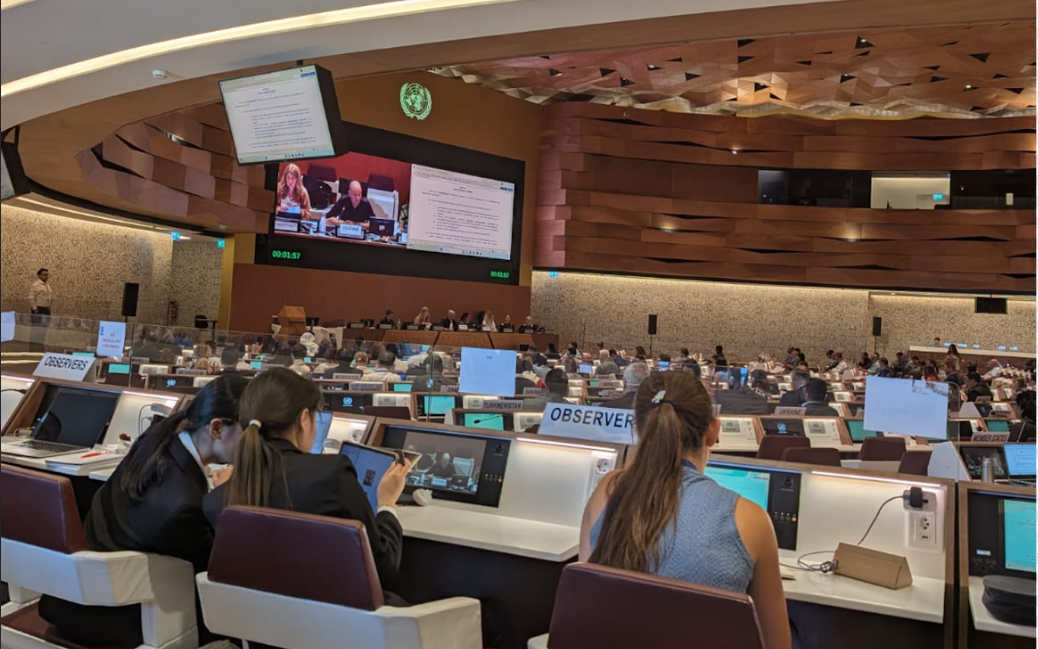Alexandra de Schonen is Head of EU Affairs at SUEZ, a global leader in the water and waste management sectors, and was interviewed by the Brussels Sustainability Club to share her company’s perspective on how to accelerate Europe’s transition towards a truly circular economy.
The European Commission plans to unveil a Circular Economy Act in 2026. From Suez’s perspective, what key measures should this legislation include to accelerate Europe’s transition towards a truly circular economy?
To accelerate Europe’s transition towards a truly circular economy, the forthcoming Circular Economy Act should stimulate demand for recycled materials. SUEZ therefore calls for the expansion of mandatory minimum recycled content requirements across key sectors and the introduction of “buy European” criteria to encourage the use of recycled materials produced in Europe.
Furthermore, to establish a genuine single market for waste and recycled materials, the Act should tackle key challenges such as the harmonization of end-of-waste criteria at EU level and the strengthening of Extended Producer Responsibility (EPR) schemes, in line with the principle of subsidiarity.
The EU has been promoting circularity for nearly a decade through initiatives like the Green Deal and the Circular Economy Action Plan. Where do you think Europe stands today and what are the biggest gaps that still need to be addressed?
The European recycling industry is nearing a critical tipping point. A significant drop in local production, a surge in imports from third countries, and escalating economic strains are creating strong difficulties for the EU industry. The total capacity of plastics recycling facilities that ceased operations in 2024 doubled compared to 2023, and the scenario is further escalating in 2025, affecting both small and large businesses. The situation is equally serious for other waste streams.
Serious repercussions are to be expected across the entire value chain. This situation is even more worrying as the recycling industry actively contributes to the decarbonization, the competitiveness and the sovereignty of the European economy.
SUEZ has identified three central issues as barriers for the development of recycling in the EU:
- Increased imports – dumping – from Asia, despite investments in European recycling factories;
- The stagnant or lack of demand for recycled or secondary raw materials;
- The lack of financial incentives, the improper enforcement of regulatory obligations, and the absence of penalties when the targets are not achieved. In 2023, only 11.8% of materials used by the European industry were derived from recycled sources, a very slight increase of 1.1% since 2010.
Suez has positioned itself as a key player in recycling and resource management. How is the company adapting its business model to align with upcoming EU sustainability targets and circularity goals?
SUEZ is adapting its business model by investing in advanced recycling technologies for high-value materials such as plastics (PET, PVC, agricultural plastics) or metals (copper, aluminum, steel), scaling industrial capacity, and demonstrating positive carbon impact.
For instance, SUEZ operates the France’s largest agricultural and industrial plastic recycling plant, near Nantes. Each year, the recycling of 60,000 tons of LDPE (low-density polyethylen) produces 34,000 tons of reusable plastic pellets. These recycled pellets replace those made from petroleum, saving 800 liters of crude oil per ton. Recycled LDPE pellets are cheaper than virgin LDPE plastics, an inspiring example which proves that recycling works.
Extended Producer Responsibility (EPR) schemes are expected to expand under the new legislation. How does Suez see the role of producers evolving and what kind of partnerships between recyclers and industry could make these systems more efficient?
SUEZ considers that, when properly implemented, Extended Producer Responsibility (EPR) is an effective economic instrument for applying the “polluter pays” principle, particularly in sectors where waste management systems are still developing. The EPR mechanism should intervene temporarily in markets that fail to achieve economic balance or environmental objectives, as it enables direct action on key levers controlled by producers, such as the use of recycled materials. However, in line with the principle of subsidiarity, SUEZ believes that EPR should not apply to waste streams that are already economically viable and environmentally efficient, where market value alone provides sufficient incentive to support recycling without adding administrative complexity.
In addition, SUEZ highlights the need to establish a single, transparent traceability system for each sector, co-managed by waste operators to ensure data security, simplify reporting, and create a common reference framework. SUEZ also calls for the creation of an independent regulatory authority in each Member State, involving waste management operators, to monitor and assess the performance and effectiveness of EPR schemes.
Many experts argue that achieving circularity requires massive investment in infrastructure and technology. What are the most promising innovations Suez is currently investing in to close material loops and what support do you expect from the EU to scale them?
To close material loops, SUEZ invests heavily in recycling infrastructure and innovation, notably for plastics, batteries, and metals. For instance, on October 2024, Suez and Renault joined forces for the recycling of metal waste and end-of-life vehicles to support the ecological transition in the automotive sector. In the automotive sector, SUEZ brings its expertise in vehicle recycling and automotive waste management, along with its industrial-scale capacity to deliver consistent flows of high-quality recycled raw materials. In the coming months, additional projects will be launched to advance the recycling of batteries from electric vehicles.
SUEZ calls on the EU for supportive measures such as tax incentives, mandatory use of recycled content in public procurement, and financial mechanisms to offset recycled materials’ higher costs and encourage sustainable investments.
Digitalisation and data sharing are increasingly seen as enablers of the circular economy. How can data help track materials, improve recycling rates, or foster new circular business models?
Digitalisation is a key enabler of the circular economy by facilitating a unified, secure traceability system for waste and recycled materials. This improves data reporting, transparency, and efficiency, thereby enhancing recycling rates and supporting new circular business models through better material tracking.
One recurring concern from recyclers is the lack of harmonisation across EU Member States on waste and recycling rules. How big of a problem is this for companies like Suez and what do you hope the Circular Economy Act will do to address it?
Some fragmented national waste and recycling regulations pose significant challenges, hampering market integration. In particular, the Circular Economy Act should harmonize end-of-waste criteria for some materials such as plastics, paper and critical materials, in order to harmonize standards across Europe.
Moreover, the Circular Economy Act should introduce customs codes distinguishing virgin and recycled materials to ensure a level playing field. Pushing for this distinction is the cornerstone of different treatment in pricing and market incorporation.
Despite growing ambition, secondary raw materials still struggle to compete with virgin materials on price and quality. What specific EU measures would help make recycled materials more attractive for industry?
To enhance the competitiveness of recycled materials, binding minimum recycled content quotas should be expanded across sectors, VAT on recycled materials reduced, and “buy European” requirements introduced in public procurement. Strengthening anti-dumping measures and implementing mirror clauses in trade agreements will also be essential to support local recycling industries.
Europe’s circular economy also has a global footprint, with waste exports and critical raw materials dependencies. What role should EU policy play in ensuring circularity extends beyond Europe’s borders, in a fair and sustainable way?
EU policy must ensure circularity transcends Europe’s borders by restricting exports of critical and hazardous waste, promoting international agreements enforcing equivalent standards, protecting local recycling markets, and reinforcing strategic autonomy via coherent regulations on batteries, electronic waste, and critical raw materials.
Finally, the circular economy isn’t only about technology, it’s about people. How can the transition to a more circular economy create quality jobs, and what skills or training are most urgently needed?
The circular economy transition must generate quality jobs by developing skilled employment in advanced recycling, complex waste treatment, and renewable energy sectors. Urgent needs include specialized training programs on new technologies, digital traceability, and compliance with evolving European standards to support workforce upskilling.







